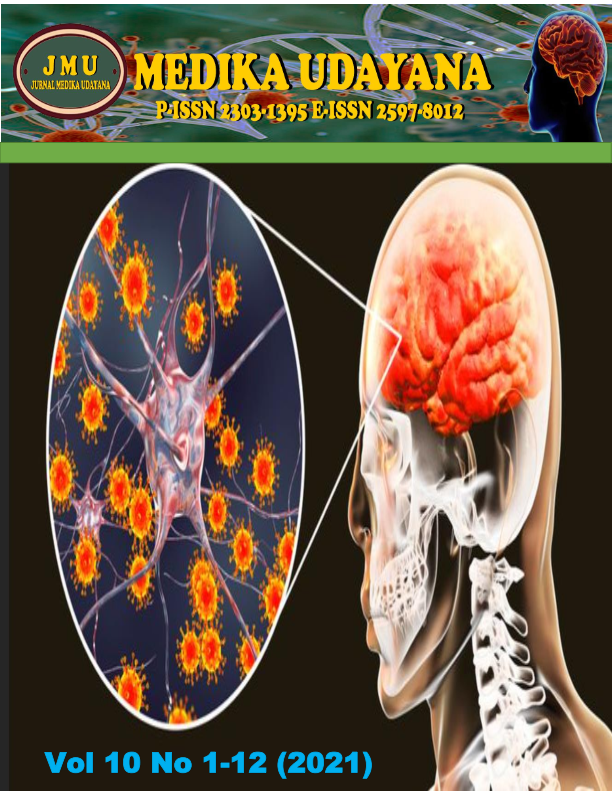Identification of Shigella dysenteriae on Salad Food in Denpasar City
Abstract
Shigella dysenteriae is a global disease-causing bacteria that has millions of infections every year. Direct human-to-human transmission, spread due to contamination of food and beverages, low susceptibility to stomach acid and vector contribution can cause disease caused by Shigella dysenteriae to be widespread. Salad is a food that is prone to contamination by the Shigella dysenteriae bacteria if it does not pay attention to the hygiene process before processing, during processing and selling. The purpose of this study was to determine the percentage of Shigella dysenteriae contamination in salad food in Denpasar City. Design of this study is a descriptive study with cluster purposive sampling technique and obtained 12 salad samples that meet the inclusion criteria. The sampling process was carried out using aseptic techniques for all samples taken from wrong traders in 4 areas of Denpasar City. After the sample collection was complete, a test for the presence of Shigella dysenteriae was carried out at the Microbiology Laboratory of FK Unud by culture of SSA media culture, oxidase test and identification test at the Nikki Medika Laboratory Denpasar using the BD Phoenix M50 method. The results showed that of the 12 salad samples studied, none of the samples identified were Shigella dysenteriae (0%), but Pluralibacter gergoviae, Leminorella grimontii, and Pantoea agglomerans were identified which is not a dangerous pathogenic bacteria. The negative results found were due to the good level of sanitation and hygiene applied by the salad traders.
Keywords : Contamination of Shigella dysenteriae, Shigella dysenteriae, Salad.











